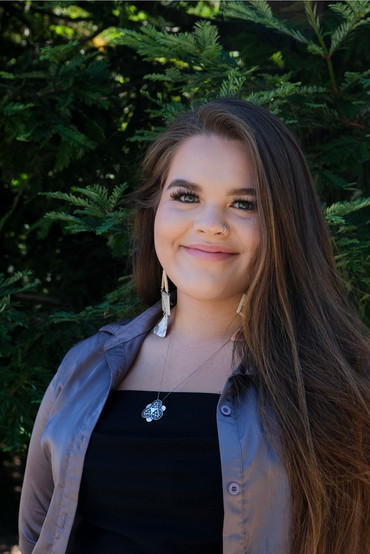Teaching Resource: New Native Science Unit for Integrating TEK into Your Classroom
- Redbud Resource Group

- Feb 14, 2023
- 4 min read
Updated: Dec 17, 2024
On Tuesday, January 31, 2023, Redbud Resource Group hosted a roundtable discussion featuring Save California Salmon’s (SCS) new Traditional Ecological Knowledge (TEK) curriculum.
The curriculum is multi-disciplinary, including science, political science, social science, art, and more.
By engaging in the lesson, students will:
Develop knowledge of Traditional Ecological Knowledge as it pertains to Forests and Fire, Rivers and fish, Estuaries and the Bay-Delta, the Ocean, as well as what California is doing to counter climate change in the CA 30x30 Plan.
Develop skills and knowledge in areas important to nonprofits, government, academia, science, law, resource management, and community advocacy. (Save California Salmon)
For an in depth look at the curriculum, check out this hour long round table discussion featuring Redbud's Trelasa Baratta (Pomo/Lake Miwok) and Save California Salmon's Danielle Frank (Hupa/Yurok), Araceli Moreno (Hñähñu), and Michaela Ward (Hupa/Yurok).
(Left to Right): Trelasa Baratta, Danielle Frank, Araceli Moreno, and Michaela Ward.
About the Unit
Save California Salmon’s new curriculum Traditional Ecological Knowledge, Science & Management is divided into six modules, each focused on a different component of TEK, helping to create a more holistic understanding of our natural world. This environmental and science-based curriculum is aligned to California Common Core standards suitable for grades 6-8.

Each module contains four straightforward lessons. Lessons are packed with multimedia presentations, activities, labs and additional resources. The modules can be taught in any order, and/or they can be used alone and integrated into other curricula across subjects.

Each lesson develops Traditional Ecological Knowledge and skills within young future advocates in the fight to reverse the effects of climate change. Consider co-teaching specific lessons with colleagues to bring out their interdisciplinary features!

Why integrate Traditional Ecological Knowledge perspectives into the classroom?
Straight from the mouths of three of SCS’s youngest and brightest advocates, here are 3 reasons you should implement their resources into your classrooms today!
#1: People are A PART of the Land.
TEK gives teachers the tools needed to help restore student relationships with Land and Water
TEK builds empathy and teaches students how to live responsibly
Danielle [06:48]: “TEK shows that there’s no disconnect between people and nature… people and the land are one and the same. People themselves are part of the ecosystems that we live within… TEK highlights that connection between people and the land, knowing that this land has always been taken care of, that all of the lands in the States have originally, that they were not left by themselves."
#2: Western Science isn’t the ONLY way of understanding the world around us.
TEK decolonizes Eurocentric curriculum by integrating stories and diverse perspectives
TEK compliments Western science - it is not meant to replace it
Michaela [19:07]: “I believe that teaching this curriculum can be really beneficial in understanding different perspectives that aren’t all just from one narrative. I feel like we’ve been fed one narrative for so long, and now we’re opening our minds and taking on new knowledge such as TEK.”
Danielle [20:17]: “TEK is the most ancient form of science that we have. In order to get the most correct answer we want to be working towards that answer in every way possible. And so we want to be using all the different resources we have available, all the knowledge that we have, so that we can get the most accurate and best possible answer when we’re talking about what is healthy for climate, what is healthy for Native students, what is healthy for biodiversity.”
#3: It creates an opportunity for students to feel seen and heard.
TEK is culturally responsive
TEK creates a safe space for historically silenced voices
Danielle [19:30]: “It really provides space for Native students in an institution that has historically been really dangerous for Native people. It validates their knowledge and who they are at a time when they really need it, in junior high.”
Araceli [21:12]: “I think students face a lot of hurdles in their classrooms because of their race or gender, socio economic status, culture, etcetera, and bringing in curriculum like TEK is one way to break classroom barriers like that and be more inclusive and equitable in the classroom.”
The health and well-being of our Mother Earth depends on a combination of knowledge, both modern and ancient. The Indigenous ways of knowing that once dominated these lands resulted in balanced and harmonious relationships between all species for centuries. Since attempts made by settler colonists to control nature and physically wipe out anything that stood in the way of “progress,” Mother Earth has been fighting back, and she will win if we don’t live up to our responsibilities as humans to care for and tend to the land.
We can all learn from one another, so let’s start creating a more holistic understanding of the Earth by listening to the invaluable knowledge that Native scientists have to offer us. We must do it for our ancestors who fought their entire lives to keep this knowledge alive, and we must do it for our children and future generations who rely on us to make sure our ecosystems don’t just survive, but flourish.
To check out more of Save California Salmon’s educational resources, click the button below:















Comments